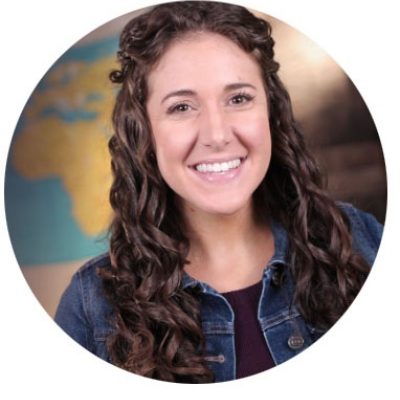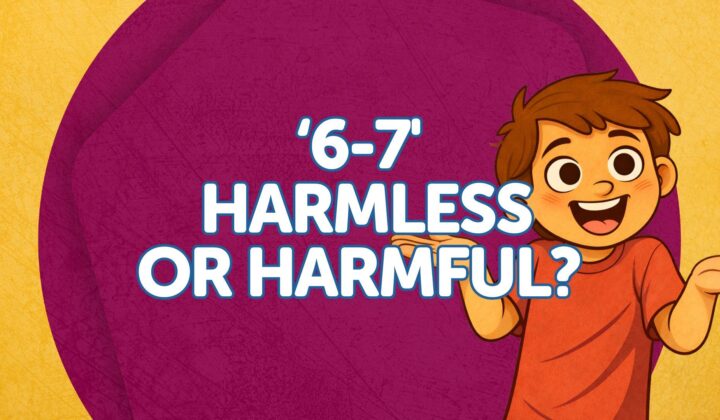Learn more about the journey that led to us equipping kids to carefully evaluate every idea they encounter.
Meet members of our team who have contributed to curriculum development.
Hear from real users of the Foundation Curriculum.
Learn what we believe about God, Jesus, Scripture, and more.
Christian Homeschool Activity About the True Meaning of Christmas
At some point between Thanksgiving and Christmas, most of us will read our kids the Christmas story from Luke’s gospel. Just thinking about this probably elicits memories of crackling fires, cozy blankets, and twinkling lights. This tradition can make for great family memories! But, have you ever paused to think about how you could use this family tradition as a Christian homeschool activity (or general family discipleship time) to get your kids thinking about the historic nature of Christianity?
Free Webinar: The Resurrection, a Fact or Fiction?
Join Foundation Worldview's Elizabeth Urbanowicz as we talk about the importance of our kids understanding the historical reliability of the resurrection and practical ways we can show this to them.
Homeschool Activity With the Gospel of Luke
Here are three easy steps for using Luke’s gospel as a Christmas/Christian homeschool activity to get our kids thinking critically during Christmas.
1. Highlight the Historic Claims of Luke
Unlike most stories we read to our children, Luke doesn’t begin with “Once upon a time” or “Long, long ago.” Instead, Luke writes,
"Inasmuch as many have undertaken to compile a narrative of the things that have been accomplished among us, just as those who from the beginning were eyewitnesses and ministers of the word have delivered them to us, it seemed good to me also, having followed all things closely for some time past, to write an orderly account for you, most excellent Theophilus, that you may have certainty concerning the things you have been taught." (Luke 1:1-4)
Wait a minute. Did you catch that? Right from the start, Luke claims to be reporting historical events. Look again at the italicized words. Luke intends to write an orderly account, comprised of eyewitness testimony so that readers will have certainty regarding the events of Jesus’ life. Since Luke claims to be recording history, the following chapters are filled with the names of specific rulers, locations, and events.
This year, after you read this passage with your children, ask them if they think Luke is making up a fictional story, or trying to report history. Then ask them why they responded the way they did, allowing them to explain their reasoning. Hopefully, they will have picked up on some of the key words we identified earlier. Be sure to ask follow-up questions such as,
- “What words gave you clues as to this claiming to be fiction or history?”
- “How might the wording have been different if this were a different kind of story?”
Asking these questions will get your kids thinking outside of the typical Christmas box and exploring whether or not the author of this account claims to be writing history or fiction.
2. Read A Fictional Christmas Story
After you’ve read the Christmas story from Luke’s gospel, let your children pick a fictional Christmas story to read. (Rudolph, Frosty the Snowman, and The Polar Express are all great options.) Read through the book and ask your children the same type of questions as before:
“Is the author telling us a make-believe story or reporting actual events? How to do you know?”
Give them time to think through the questions and formulate a response and defense. If they struggle to explain the difference between fiction and history, ask them about different elements that demonstrate the story is fictional.
“Does the author claim the story is true?” “Are there any known historical figures involved?” “Does anything take place in this story that you know cannot take place in real life?”
Once you’ve established that the story is fictional, you’re ready to move on.
3. Compare and Contrast the Two
The final step is to have your children find similarities and differences between the two stories. A notable similarity is that both stories contain elements we do not typically experience in our everyday lives. For example, the talking animals in Rudolph or the magical snowman in Frosty. Similarly, the opening chapters of Luke’s gospel have angels announcing supernatural events. Point out how the fictional story you read claims these things happened by magic, while Luke claims that God brought about these miraculous events. (If you’re uncertain of the difference between these two claims, check out chapter 5 in Natasha Crain’s, Talking with Your Kids About God.)
You can then ask your children to identify key differences in the writing of these stories. By this point, they should be able to articulate that Luke claims to be reporting history, identifies specific people, locations, and events that can be verified. The other story is the complete opposite. It’s a fun fairy-tale, meant for entertainment, and the author never claims anything different. That’s a huge difference!
Conclusion
Why not get creative as homeschool parents? Christmas provides the perfect opportunity for a fun, interactive, Christian homeschool activity to get our kids thinking about the historic claims of the Christian faith. Let’s not fear, nor miss out on this opportunity to get our kids thinking critically at home or elsewhere.
How to Decide on a Curriculum
Read our exclusive guide with practical advice about choosing the right Christian homeschool curriculum for your family.

About Elizabeth Urbanowicz
Elizabeth Urbanowicz is a follower of Jesus who is passionate about equipping kids to understand the truth of the Christian worldview. Elizabeth holds a B.S. in Elementary Education from Gordon College, an M.S.Ed. in Education from Northern Illinois University, and an M.A. in Christian Apologetics from Biola University. Elizabeth spent the first decade of her professional career teaching elementary students at a Christian school. Elizabeth now works full time on developing comparative worldview and apologetics resources for children. Her goal is to prepare the next generation to be lifelong critical thinkers and, most importantly, lifelong disciples of Jesus.
Related Posts and insights

How Should Christians Respond to the "6 7" Trend? Helping Kids Think Biblically About Cultural Phrases
How should Christian parents handle the "six seven" trend? Learn to avoid the genetic fallacy and guide your kids to think biblically about cultural phrases.

How Do We Explain the Doctrine of Election to Kids?
How do you explain the doctrine of election to kids without causing fear? Discover how Scripture's promises bring peace and assurance to children's hearts.

Helping Your Child Understand That Love Is a Choice, Not Just a Feeling
Is love just a feeling? Learn how to teach your child that biblical love is a choice using 1 Corinthians 13, with practical weekly tips for every age group.
